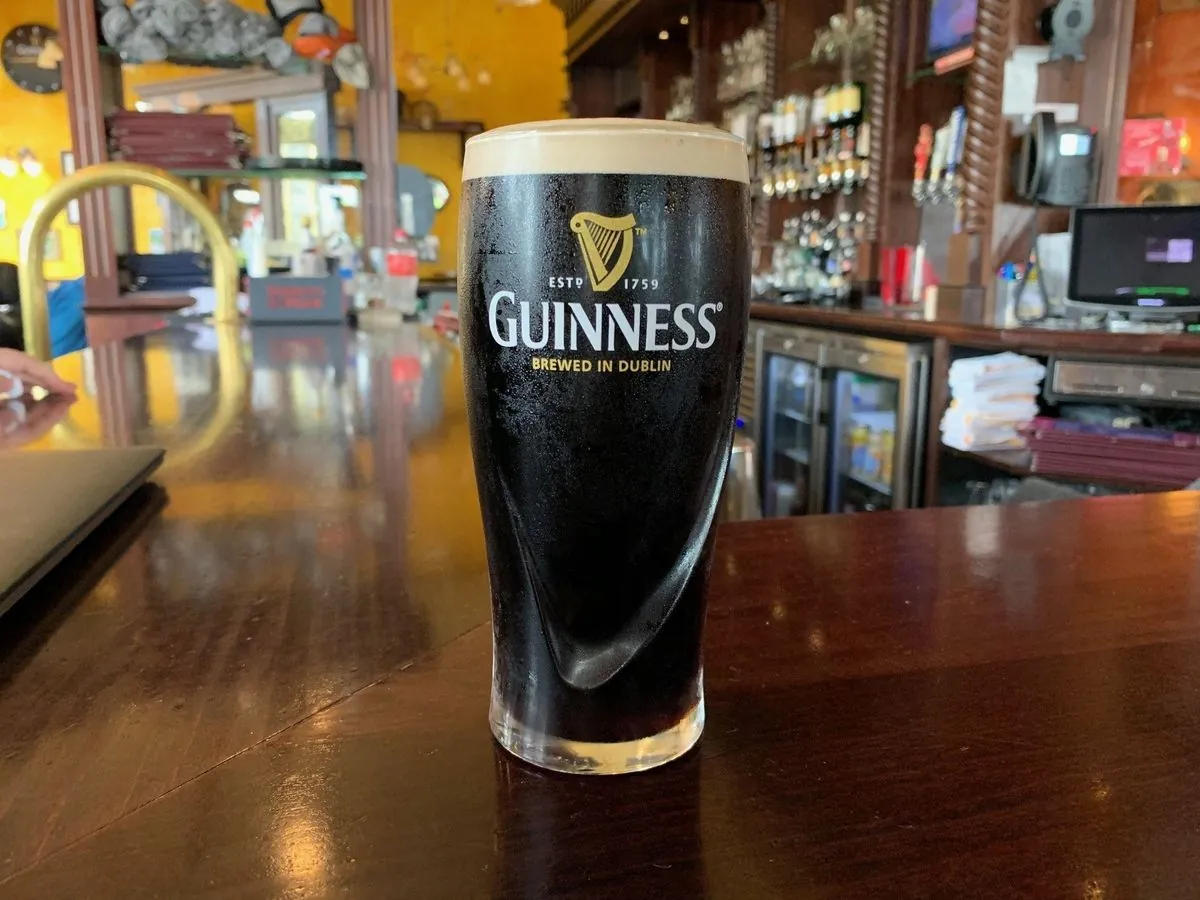Alcohol-Free Guinness Debuts on UK Taps: Price Raises Eyebrows
Alcohol-free Guinness hits UK pubs on draught, priced just below regular pints. The Devonshire in London pioneers the move, as non-alcoholic beer sales soar and Guinness attracts a diverse audience.

In a significant move for the iconic Irish brand, Diageo has introduced alcohol-free Guinness on draught in the United Kingdom for the first time. This development comes as the non-alcoholic beer market continues to expand, reflecting changing consumer preferences towards moderation and sobriety.
The Devonshire, a London pub renowned for its Guinness offerings, is spearheading this initiative. However, the pricing strategy has raised questions among consumers. A pint of the alcohol-free variant is priced at £6.35, merely 55p less than its alcoholic counterpart at the same establishment.
This minimal price difference has sparked discussions about the cost of non-alcoholic beers, especially considering the absence of alcohol duty. Diageo defends the pricing, citing the complex production process and research involved in creating Guinness 0.0.

The production of Guinness 0.0 involves using the same ingredients as the original brew, with alcohol removed through cold filtration. This method is claimed to preserve the distinctive taste that has made Guinness a global favorite since its inception in 1759 by Arthur Guinness in Dublin.
Guinness 0.0 has already claimed the top spot as the UK's best-selling non-alcoholic beer in retail outlets. Launched in 2021, it now accounts for 3% of all Guinness sales worldwide. In the year leading up to June 2024, sales of the alcohol-free variant doubled, indicating a growing trend towards moderation, particularly among younger consumers.
Anna MacDonald, Guinness marketing director at Diageo, expressed optimism about the future of Guinness 0.0, suggesting it could potentially surpass regular Guinness in sales. This shift aligns with the brand's efforts to broaden its appeal beyond its traditional image.
The Devonshire pub, which opened in late 2023, has played a crucial role in boosting Guinness's popularity. Its viral success on social media has made it one of the world's largest sellers of the stout, reportedly serving up to 15,000 pints weekly.
Interestingly, Guinness is shedding its reputation as a drink primarily for older male customers. Debra Crew, Diageo's chief executive, noted an increase in female Guinness drinkers, challenging the perception of the drink as intimidating or exclusively part of "rugby-lad culture."
"We are seeing more and more Guinness drinkers that are women. I certainly notice this in pubs. It looks kind of intimidating, right? And it did come from this kind of rugby-lad culture. And yet I think when women find that they try it, actually it's lighter than what they think it's going to be."
This evolution in Guinness's consumer base reflects the brand's rich history of innovation and adaptation. Since its founding, Guinness has been at the forefront of brewing technology, being one of the first breweries to employ scientists to enhance their product. The iconic dark color, derived from roasted barley, and the creamy texture from nitrogen bubbles smaller than those in other beers, are testaments to this commitment to quality.
As Guinness continues to evolve, it maintains connections to its heritage. The harp logo, adopted in 1862, predates its use as a symbol of the Irish state and is based on the 14th-century "O'Neill" harp. This blend of tradition and innovation has helped Guinness maintain its position as a global brand, brewed in over 50 countries and sold in more than 120.
The introduction of Guinness 0.0 on draught in the UK marks another chapter in the brand's storied history, offering more choices to consumers while preserving the essence of what makes Guinness unique.


































